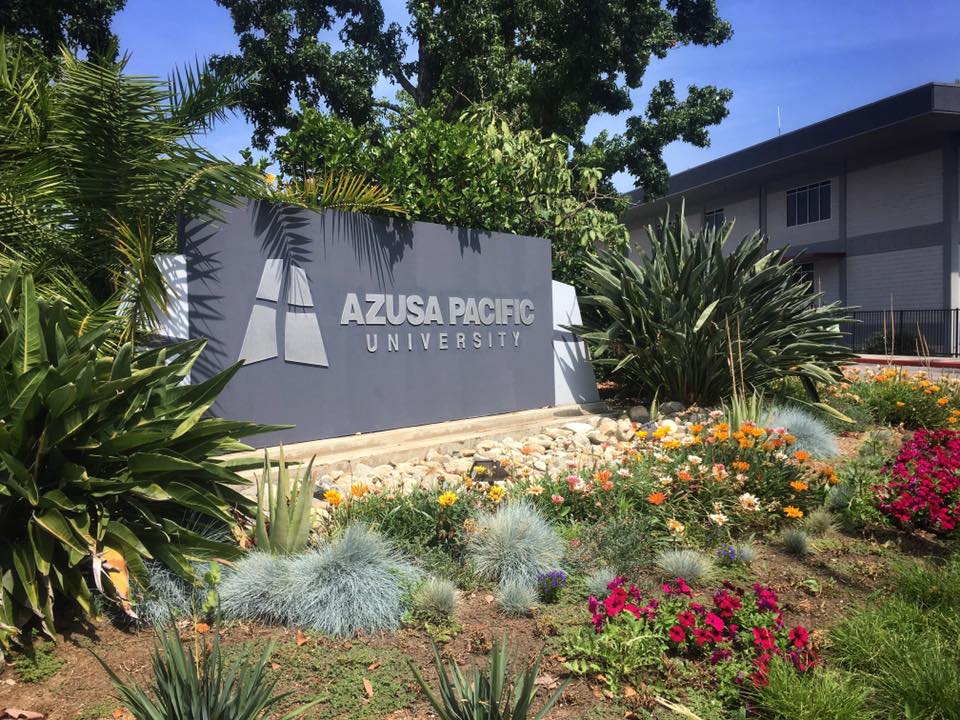Administrators at Azusa Pacific University in Southern California announced this month the college is lifting restrictions on same-sex relationships betweens students on campus.
But APU is apparently trying to walk something of a tightrope.
As it’s explained in a report from ZU Media, the university’s student-run newspaper, APU is changing its code of conduct while remaining committed to its belief that sex “is intended by God to take place only within the marriage covenant between a man and a woman.”
Atheist Group Complains About Crosses on Church Building School Leased — Pastor Says, ‘Pray for Us’
“The changes that occurred to the handbooks around sexual behavior creates one standard for all undergraduate students, as opposed to differential standards for different groups,” said Bill Fiala, associate dean of students at APU. “The change that happened with the code of conduct is still in alignment with our identity as a Christian institution. The language changed, but the spirit didn’t. Our spirit is still a conservative, evangelical perspective on human sexuality.”
The updated policy still requires all students to abstain from sexual behavior, but now no longer “singles out” those in the LGBTQ community, barring them from entering into romantic relationships.
Erin Green, co-executive director of Brave Commons, an LGBTQ advocacy organization, and a recent APU alumna, said in a statement to ZU Media that it’s “unfair to single out queer folks in same-sex romantic relationships while it is impossible to enforce or monitor [whether other students are remaining abstinent].”
“Queer students,” she continued, “are just as able to have romanticized relationships that abide by APU’s rules. The code used falsely assumed that same-sex romances always involved sexual behavior. This stigmatization causes harm to our community, especially those serious about their Christian faith.”
School District Facing Intense Backlash For Renting to Church with Traditional Views on Marriage
For years, APU students who identify as LGBTQ have operated an underground club called Haven. But because of the university’s stance on same-sex relationships and gay marriage, the group never received an endorsement from administration and could not hold meetings on campus or advertise events.
Then in 2017, with the help of Brave Commons, Haven members started discussing this topic with APU’s administrators. Those conversations, Fiala said, resulted in the university’s decision to change its rules regarding same-sex couples on campus.
The college’s SGA passed a resolution last year, asking APU administrators to create something more formal — like Haven — for the campus’ LGBTQ community.
“We have been intentional about the program, and we want it to be considered a program that comes out of student life and out of the university,” Fiala said. “We created this in support of the LGBTQ+ students at APU. One prong of that is weekly meetings with Haven. Another aspect of that is educational outreach, and holding events. We are co-creating a program with students.”
Megachurch Pastor Greg Laurie Explains How to Ignite Spiritual Revival Across America
Fiala went on to say the shift is “consistent with Christianity.” He added, “Our values for the pilot program are inclusivity, love, bravery. Our goals are care, connection and conversation. These all seem like Christian values to me.”
The murky policy change, which seeks to straddle the fence between two clear positions on same-sex relationships, has faced some criticism.
Conservative commentator Rod Dreher, an Orthodox Christian, described the shift at APU as “self-deception,” referring to the school’s wishy-washy take on the subject.
“This is how conservative institutions surrender: by giving up, then telling themselves (and their donors) that they haven’t surrendered,” he wrote in a recent column. “Saving face is not the same thing as saving the institution’s core values.”
Albert Mohler, president of the Southern Baptist Theological Seminary in Louisville, Kentucky, rebuked Fiala for supporting the rule change because it’s “the responsibility of any authentically Christian institution to know what’s right, what’s wrong, and thus, by making the arguments, who’s right and who’s wrong.”
“This doesn’t mean we treat each other without respect,” he explained, “but it does mean that we speak to one another biblical truth, Christian truth.”



